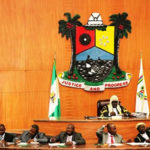This year, as in previous years, local government elections have been organised by a few state governments. In most of the states, however, there are no elected council chairmen and councilors in place, only caretaker committees put in place by the state governments, often in extra-constitutional circumstances, to oversee the affairs of the councils. In a significant sense, therefore, it is safe to say that in general, the councils are in limbo. The real tragedy, however, is that they would not have made the kind of impact that Nigerians desire even if they were in place across the 774 local government councils recognised by the 1999 Constitution (as amended), largely because they are not really local governments in the frame envisaged by the federal system of government.
There is perhaps no self-respecting student of governance systems that would doubt the integral place of local governments, properly constituted, as centres of innovation and development. That is what they are in the saner climes, and what they ought to be in Nigeria. Every Nigerian, no matter highly placed, belongs to one local government and every company is sited in a local government. So when the local governments are empowered to thrive, the country as a whole will thrive. The local governments ought to be catalysts for development. They ought to be able to generate their own electricity, for instance, and organise markets, carry out waste disposal, among other duties. However, local councils in the country are not doing anything remotely connected to these, being mere appendages of state governments and subject to the whims and caprices of state governors and the party or parties in power.
The foregoing leads to one inescapable conclusion: Nigeria is the way it is because the local government system has been crippled. Across the country, roads are in terrible shape, a phenomenon which is currently being accentuated by the rainy season. Power supply is poor or non-existent in many communities and, as a matter of fact, Nigeria is the world’s least electrified population. So, evidently, this has to change. But it cannot, and here’s why. The Nigerian government has a wrong concept of local governments. The local governments in the country should have been created by the people, not by military fiat. Since they were not created by the people, there is no way that the people can take ownership of them and turn them into potent instruments of growth. The point should be clear, therefore, that nothing of real value can be achieved under the present system, in large part because the “local governments” in the country are not created and funded by the people. It is a no-brainer that when people are taxed they become responsible. If or when local governments in the country become creations of the people as critical needs for them arise, they will function in the sense envisaged by the framers of the federal system of government, in which case they would not need to wait for the so-called “federal allocation” that is expended on frivolities in the existing councils. The current local governments were created by the military, not to serve as platforms for local development of the people, but as sources of cornering portions of the funds in the Federation Account, such that the more the number of local government council areas gifted to a state, regardless of the population in the state and any other justification, the more the funds from the Federation Account that would accrue to the state.
Pray, were it not for military fiat, just how could a state like Kano have more than twice the number of local councils as Lagos, Nigeria’s economic capital, and with a verifiable bigger population? Interestingly, during military rule, Kano, which had the same number of local governments as Lagos, was broken up into a number of states, each of them with a generous number of local governments recognised by the military-imposed constitution whereas Lagos has remained stuck with 20 local councils. The point that we seek to make is not just that Lagos should have had more local councils going by the logic that should be behind military creation of local governments. The point is that regardless of the number of local governments any state chooses to have, they should be self-funding. It is clear that if this criteria were followed, it would have been extremely difficult, if not impossible, to have 774 local governments in the country.
In any case, it is quite a tragedy that in a supposedly federal clime, local governments are listed in the constitution. Where in the world is this kind of thing done? How can local governments serve as centres of innovation when they are not created, funded and controlled by the people through their representatives? We call for the restructuring of the local government system in the country. Local governments are not federating units and, as such, they have no business being listed in the federal constitution. Rather, they should be listed in the body of laws of the states in which they are created. The current 774 local governments in the country should be expunged from the constitution, and should cease being the responsibility of the Federal Government. Unless and until that is done, the country will never witness the kind of development that is needed to make it a modern state.
YOU SHOULD NOT MISS THESE HEADLINES FROM NIGERIAN TRIBUNE
Buhari Urges MTN For Quality Service, Downward Price Review In Cost Of Data, Other Services
President Muhammadu Buhari Friday at State House Abuja urged the MTN Group to make the available top-of-the-range service to its Nigerian subscribers… How LGs can become engines of growth ; How LGs can become engines of growth ; How LGs can become engines of growth ; How LGs can become engines of growth.
WATCH TOP VIDEOS FROM NIGERIAN TRIBUNE TV
- Let’s Talk About SELF-AWARENESS
- Is Your Confidence Mistaken for Pride? Let’s talk about it
- Is Etiquette About Perfection…Or Just Not Being Rude?
- Top Psychologist Reveal 3 Signs You’re Struggling With Imposter Syndrome
- Do You Pick Up Work-Related Calls at Midnight or Never? Let’s Talk About Boundaries






